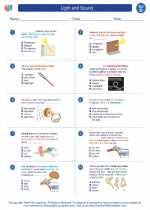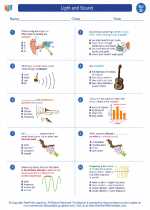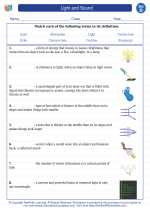Microbiology
Microbiology is the scientific study of microorganisms, including bacteria, viruses, fungi, and protozoa. These tiny organisms play a crucial role in various natural processes and have a significant impact on human health, industry, and the environment.
Key Concepts in Microbiology
- Microorganisms: Microorganisms are microscopic living organisms that are found everywhere, including the soil, water, air, and inside other living organisms.
- Bacteria: Bacteria are single-celled microorganisms that can be found in various shapes and sizes. They can be beneficial, such as those used in food production, or harmful, causing diseases.
- Viruses: Viruses are tiny infectious agents that can only replicate inside the cells of other organisms. They are responsible for a wide range of diseases, including the common cold, flu, and COVID-19.
- Fungi: Fungi are a diverse group of microorganisms that include yeasts, molds, and mushrooms. They play a vital role in processes such as decomposition and food production.
- Protozoa: Protozoa are single-celled organisms that are classified as eukaryotes. They can be free-living or parasitic and are found in various aquatic and terrestrial environments.
- Microbiome: The microbiome refers to the collection of microorganisms that live in a particular environment, such as the human gut microbiome.
- Applications of Microbiology: Microbiology has numerous practical applications, including the production of antibiotics, vaccines, food and beverage fermentation, bioremediation, and genetic engineering.
Study Guide for Microbiology
When studying microbiology, it's essential to understand the following key areas:
- Microbial Structure: Learn about the structure and characteristics of different types of microorganisms, including bacteria, viruses, fungi, and protozoa.
- Microbial Metabolism: Understand how microorganisms obtain and utilize energy, as well as their role in processes such as fermentation and photosynthesis.
- Microbial Genetics: Explore the genetic mechanisms of microorganisms, including DNA replication, mutation, and genetic recombination.
- Microbial Ecology: Study the interactions between microorganisms and their environments, including their roles in nutrient cycling and symbiotic relationships.
- Microbial Pathogenesis: Examine the mechanisms by which microorganisms cause disease, including the host-pathogen interactions and the immune response.
- Microbial Applications: Investigate the practical applications of microbiology in fields such as medicine, agriculture, biotechnology, and environmental science.
By mastering these concepts, you will develop a solid understanding of microbiology and its diverse implications in the world around us.
.◂Science Worksheets and Study Guides Fourth Grade. Light and Sound
Study Guide Light and sound
Light and sound  Worksheet/Answer key
Worksheet/Answer key Light and sound
Light and sound  Worksheet/Answer key
Worksheet/Answer key Light and sound
Light and sound  Worksheet/Answer key
Worksheet/Answer key Light and sound
Light and sound  Vocabulary/Answer key
Vocabulary/Answer key Light and sound
Light and sound  Vocabulary/Answer key
Vocabulary/Answer key Light and sound
Light and sound  Vocabulary/Answer key
Vocabulary/Answer key Light and sound
Light and sound 

 Worksheet/Answer key
Worksheet/Answer key
 Worksheet/Answer key
Worksheet/Answer key
 Worksheet/Answer key
Worksheet/Answer key
 Vocabulary/Answer key
Vocabulary/Answer key
 Vocabulary/Answer key
Vocabulary/Answer key
 Vocabulary/Answer key
Vocabulary/Answer key

The resources above cover the following skills:
PHYSICAL SCIENCE (NGSS)
Waves and their Applications in Technologies for Information Transfer
Students who demonstrate understanding can:
Develop a model of waves to describe patterns in terms of amplitude and wavelength and that waves can cause objects to move.